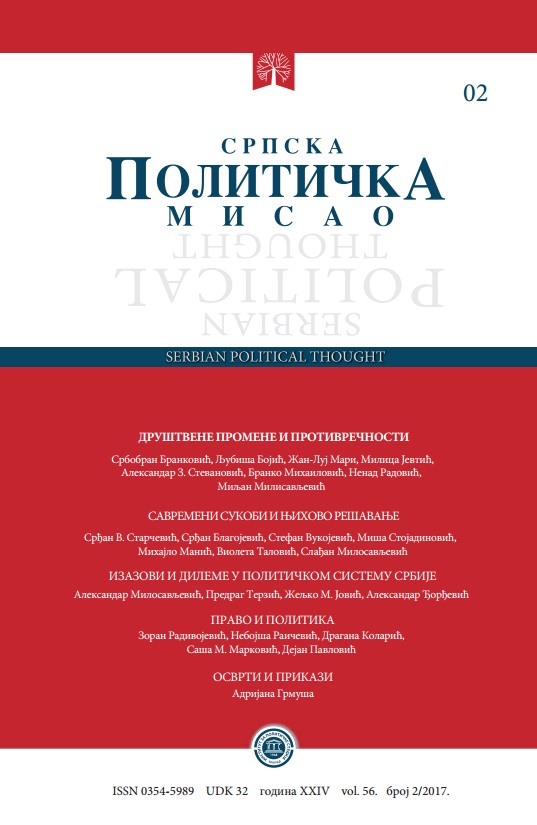Начело ne bis in idem у пракси Уставног суда Србије и Европског суда за људска права
Ne Bis In Idem Principle in Practice of the Constitutional Court of Serbia and the European Court of Human Rights
Author(s): Dragana Z. Kolarić, Saša M. MarkovićSubject(s): Criminal Law, Human Rights and Humanitarian Law, EU-Legislation
Published by: Институт за политичке студије
Keywords: ne bis in idem; the European Court of Human Rights; the Constitutional Court of Serbia; minor offences; criminal offences
Summary/Abstract: Taking into account the possible breach of the prohibition against repeated criminal proceedings and the practice of the European Court of Human rights, the authors point out the need of subtle delimitation of criminal offences from minor offences. Misdemeanour Courts must establish the facts that make the subject matter of minor offences, and Criminal Courts the subject matter of criminal offences. In the criminal legislation of the Republic of Serbia there is an authentic concept of multi-stage or manifold culpability. Thus, the Criminal Code of Serbia in its Article 63, paragraph 3, stipulates that a prison sentence or a fine which the offender has served or paid for a misdemeanour or commercial offence, as well as sentence or disciplinary measure of depriving of liberty which the offender has served for violation of military discipline shall be credited to the sentence pronounced for a criminal offence whose elements comprise also the elements of a misdemeanour, commercial offence or violation of military discipline. On the other hand, a reverse situation in which a criminal offence has been established may result in this most serious form of punishable behaviour to consume a less serious offence, i.e. commercial offence or misdemeanour because it is a seemingly ideal concurrence of offences. In order to prevent the activation of the ne bis in idem principle in the future, the legislator must delimit misdemeanours from criminal offences more precisely. Clearer legal differentiation between misdemeanours and criminal offences, as well as better cooperation of competent state authorities would lead to reduced number of breaches of prohibition against repeated criminal proceedings. The matter of identity of punishable offences is one of the most difficult matters of implementation of the ne bis in idem principle, particularly when there is overlapping of more serious minor offences and criminal offences, in other words when sentence of imprisonment can be delivered in both cases.
Journal: Српска политичка мисао
- Issue Year: 2017
- Issue No: 2
- Page Range: 263-280
- Page Count: 18
- Language: Serbian

